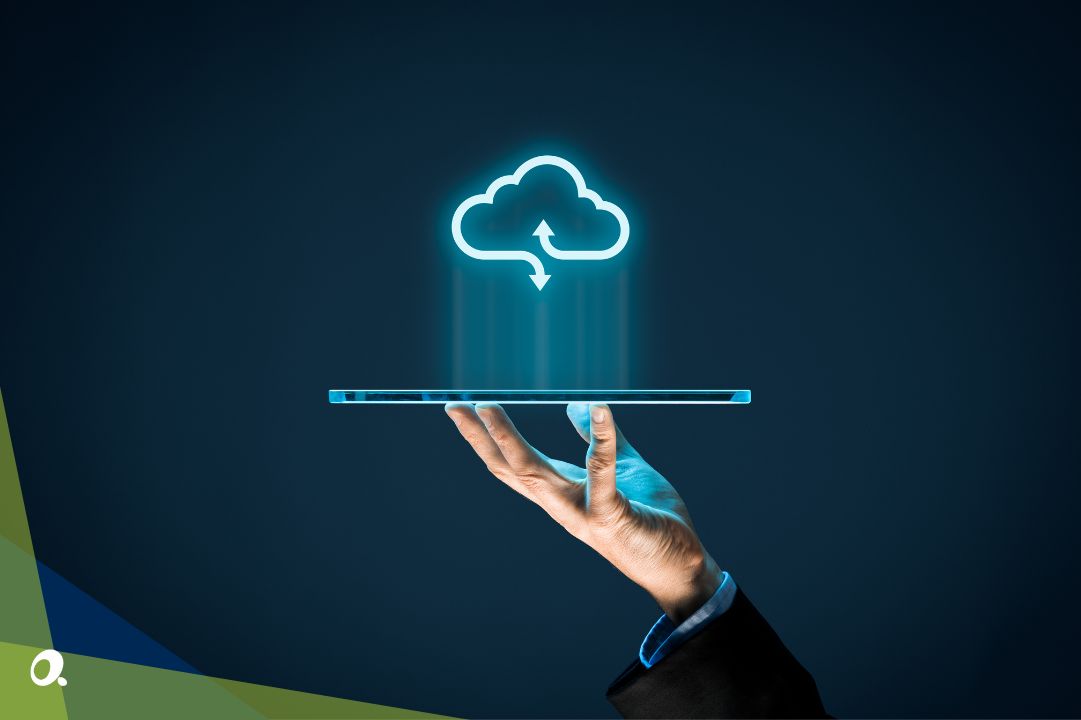Cloud ERP is transforming how businesses manage operations, offering a flexible, scalable alternative to traditional systems. Learn what Cloud ERP is, how it works, and why companies are making the switch.
Every business relies on a mix of processes to keep things running smoothly — from finance and accounting to supply chain management and HR. As companies grow, managing these functions efficiently becomes more challenging, especially when data is scattered across different systems.
Enterprise Resource Planning (ERP) software brings everything together, providing a centralised way to manage operations. However, traditional ERP systems often come with high upfront costs, complex installations, and ongoing maintenance requirements.
This is where cloud ERP comes in. Instead of being installed on local servers, cloud ERP is hosted online, offering businesses a more flexible, scalable, and accessible way to manage their operations. More companies are moving away from on-premise systems in favour of cloud-based solutions — but what exactly is cloud ERP, and how does it work?
Enterprise Resource Planning Software 101
 Enterprise Resource Planning (ERP) software is designed to help businesses manage core processes within a single, unified system. Instead of relying on disconnected tools for finance, supply chain management, human resources, and other functions, ERP centralises operations, providing real-time visibility and improving efficiency.
Enterprise Resource Planning (ERP) software is designed to help businesses manage core processes within a single, unified system. Instead of relying on disconnected tools for finance, supply chain management, human resources, and other functions, ERP centralises operations, providing real-time visibility and improving efficiency.
Businesses of all sizes use ERP to streamline workflows, reduce manual data entry, and make more informed decisions based on accurate, up-to-date information. While ERP has traditionally been installed on physical servers within a company’s IT infrastructure, cloud technology has transformed how businesses approach ERP solutions, making them more accessible and adaptable to modern demands.
What Makes an ERP System ‘Cloud-Based’?
 ERP systems have traditionally been installed on physical servers within a company’s IT infrastructure, requiring regular maintenance and on-site access. Cloud ERP changes this by hosting the software online, allowing businesses to access their systems from anywhere with an internet connection.
ERP systems have traditionally been installed on physical servers within a company’s IT infrastructure, requiring regular maintenance and on-site access. Cloud ERP changes this by hosting the software online, allowing businesses to access their systems from anywhere with an internet connection.
But what sets cloud ERP apart from on-premise solutions?
-
Hosted in the cloud, not on-site
Unlike traditional ERP systems that require dedicated servers, cloud ERP is hosted in secure, remote data centres managed by a provider. This removes the need for businesses to maintain their own hardware, reducing IT overhead and ensuring system availability without on-site infrastructure.
Cloud ERP systems are accessed through a web browser or mobile app, meaning employees can log in from any device, regardless of location. This flexibility is especially valuable for companies with remote teams, multiple office locations, or those who need to access data while travelling.
-
Automatic updates and maintenance
With on-premise ERP, businesses are responsible for installing software updates, patches, and security enhancements. Cloud ERP providers handle these updates automatically, ensuring that businesses always have access to the latest features, security protocols, and performance improvements without downtime or IT intervention.
-
Subscription-based pricing
Traditional ERP systems often require a large upfront investment in software licences, servers, and ongoing maintenance. Cloud ERP typically follows a subscription-based pricing model, where businesses pay a recurring fee for access to the software. This shifts ERP from a capital expenditure (CapEx) to an operational expense (OpEx), making it more manageable for businesses of all sizes.
How Cloud ERP Works
 Cloud ERP operates on a modern, web-based framework that allows businesses to access their systems securely from anywhere. Unlike traditional ERP software, which runs on local servers, cloud ERP leverages internet-based infrastructure to store data, process transactions, and provide real-time insights.
Cloud ERP operates on a modern, web-based framework that allows businesses to access their systems securely from anywhere. Unlike traditional ERP software, which runs on local servers, cloud ERP leverages internet-based infrastructure to store data, process transactions, and provide real-time insights.
Understanding the key components of how cloud ERP functions helps businesses see why it has become the preferred choice for many organisations. So, let’s take a look at how cloud ERP works
Multi-tenant vs single-tenant
Cloud ERP solutions are typically built on either a multi-tenant or single-tenant model. In a multi-tenant setup, multiple businesses share the same cloud infrastructure while keeping their data separate and secure. This allows for cost savings and seamless updates. A single-tenant model, on the other hand, dedicates cloud resources to a single organisation, offering more control at a higher cost.
Data storage and security
All business data in a cloud ERP system is stored in highly secure, remote data centres managed by the provider. These data centres use advanced encryption, backup protocols, and disaster recovery measures to ensure continuous availability and protection against cyber threats. Security updates are applied automatically, reducing the risk of vulnerabilities compared to manually maintained on-premise systems.
Internet-based access and real-time updates
Since Cloud ERP operates over the internet, users can access the system from any device with a browser or app. This means real-time financials, inventory tracking, and reporting are available instantly, enabling faster decision-making. Unlike traditional ERP, which may require batch processing or manual data refreshes, Cloud ERP ensures that all information is continuously updated.
Seamless integration with other applications
Cloud ERP systems are designed to integrate with other cloud-based applications, such as customer relationship management (CRM), payroll, and e-commerce platforms. This ensures smooth data flow between departments, reducing manual data entry and improving efficiency. APIs (Application Programming Interfaces) make it easy to connect Cloud ERP with third-party tools, allowing businesses to customise their workflows as needed.
Key Benefits of Cloud ERP
 Businesses are increasingly turning to Cloud ERP due to its ability to improve efficiency, reduce IT complexity, and provide real-time insights. While every organisation has unique requirements, Cloud ERP offers a range of benefits that make it a compelling choice for modern businesses.
Businesses are increasingly turning to Cloud ERP due to its ability to improve efficiency, reduce IT complexity, and provide real-time insights. While every organisation has unique requirements, Cloud ERP offers a range of benefits that make it a compelling choice for modern businesses.
Let’s have a look at the main benefits of using cloud ERP:
- 1. Scalability
-
Cloud ERP systems are designed to scale with a business as it expands. Whether a company adds new users, locations, or product lines, cloud ERP can adjust without the need for significant infrastructure upgrades. This flexibility allows businesses to adapt quickly to market changes without outgrowing their software.
- 2. Accessibility
-
Unlike traditional ERP, which requires employees to be on-site to access critical data, cloud ERP allows authorised users to log in securely from any device with an internet connection. This is particularly beneficial for companies with remote teams, multiple offices, or employees who need to access financial and operational data while travelling.
- 3. Automatic Updates
-
With cloud ERP, businesses no longer need to schedule or manually apply software updates. System upgrades, security patches, and new features are rolled out automatically by the provider, ensuring that businesses always have access to the latest technology without downtime or additional costs.
- 4. Lower Upfront Costs
-
On-premise ERP requires a significant investment in hardware, servers, and IT personnel to manage the system. Cloud ERP eliminates these expenses by operating on a subscription-based model, where businesses pay for the software as a service (SaaS). This reduces the financial burden of maintaining on-premise infrastructure while providing predictable monthly costs.
- 5. System Integrations
-
Modern businesses rely on multiple software solutions to manage operations. Cloud ERP is built to integrate with other cloud-based applications, such as accounting software, e-commerce platforms, and payroll systems. This ensures a smooth flow of data across departments, reducing manual work and improving accuracy.
Who Is Cloud ERP Perfect For?
 Cloud ERP is used by businesses across various industries, from small startups to multinational corporations. Its flexibility makes it a suitable choice for organisations looking to improve efficiency, streamline operations, and gain better visibility over financial and operational data.
Cloud ERP is used by businesses across various industries, from small startups to multinational corporations. Its flexibility makes it a suitable choice for organisations looking to improve efficiency, streamline operations, and gain better visibility over financial and operational data.
So, what types of businesses should be looking into utilising cloud ERP?
Small and medium-sized enterprises (SMEs)
Many SMEs adopt cloud ERP to replace outdated spreadsheets or disconnected systems. With a cloud-based approach, they can access enterprise-grade tools without the high upfront costs of on-premise software. The ability to scale ensures that as the business grows, the system can adapt to new requirements.
Mid-market companies
For businesses that have outgrown entry-level accounting software, cloud ERP offers a more advanced solution. Mid-sized companies benefit from improved financial management, automated workflows, and better integration across departments — all without the need for in-house IT teams to manage complex infrastructure.
Large enterprises
Larger organisations often use cloud ERP to centralise operations across multiple locations. With a globally accessible system, they can standardise processes, improve reporting, and ensure consistency across business units. Cloud ERP also provides enhanced security and compliance features, helping enterprises meet industry regulations.
Industry-specific use cases
Cloud ERP is widely used in industries such as manufacturing, retail, healthcare, professional services, and technology. Each sector benefits from industry-specific capabilities, such as inventory management for retailers, project tracking for service-based businesses, and compliance tools for heavily regulated industries.
How to Determine If Cloud ERP Is Right for Your Business
 Every organisation has unique operational needs, but certain signs indicate when it may be time to consider using a cloud ERP. Businesses evaluating whether to transition from spreadsheets, entry-level software, or on-premise ERP can start by asking a few key questions:
Every organisation has unique operational needs, but certain signs indicate when it may be time to consider using a cloud ERP. Businesses evaluating whether to transition from spreadsheets, entry-level software, or on-premise ERP can start by asking a few key questions:
-
Is our current system holding the business back?
If financial data is spread across multiple tools, reports take too long to generate, or manual processes are causing inefficiencies, it may be a sign that your current setup is limiting productivity. Cloud ERP consolidates data into a single system, providing real-time insights and reducing the need for workarounds.
-
Do we need better remote access?
As hybrid and remote work become more common, businesses need secure, flexible access to critical systems. If employees struggle to access data outside the office or rely on VPNs and outdated ERP infrastructure, cloud ERP offers a more seamless and secure way to manage operations from anywhere.
-
Is IT maintenance costs a growing concern?
Managing on-premise servers, software updates, and security patches can become a burden for businesses without dedicated IT teams. Cloud ERP removes this responsibility by shifting system maintenance to the provider, ensuring the latest updates and security measures are applied automatically.
-
Are we planning for growth?
Expanding into new markets, launching new product lines, or increasing transaction volumes can put strain on traditional ERP systems. Cloud ERP is built to scale, allowing businesses to add users, locations, and functionalities without requiring significant infrastructure changes.
-
Do we need stronger integration across departments?
Disconnected systems often lead to data silos, where finance, sales, and operations teams struggle to share information efficiently. Cloud ERP enables seamless integration with other business applications, improving collaboration and decision-making.
Conclusion
Cloud ERP has transformed the way businesses manage their operations, providing a flexible, scalable, and accessible alternative to traditional on-premise systems. By centralising financials, supply chain management, and other core functions in a cloud-based platform, organisations can improve efficiency, reduce IT overhead, and gain real-time insights into their business performance.
Understanding how cloud ERP works and its key benefits can help businesses evaluate whether it aligns with their needs. While every organisation has different requirements, companies of all sizes are increasingly looking to cloud-based solutions to stay competitive in a fast-changing business environment.
Every business has different needs, and understanding whether cloud ERP is the right fit takes careful evaluation. If you're thinking about your next steps, identifying what’s working within your current setup — and what’s not — can help guide your decision.
Curious about how cloud technology is shaping financial management? Read our guide on cloud financial management to explore how businesses are using cloud-based solutions to improve their financial operations.
FIND OUT MORE ABOUT CLOUD FINANCIAL MANAGEMENT HERE